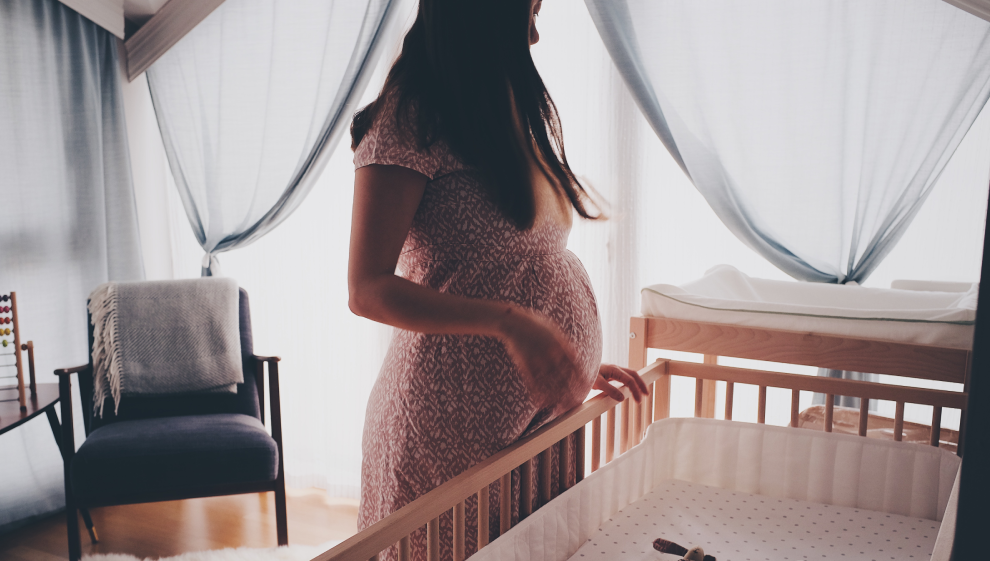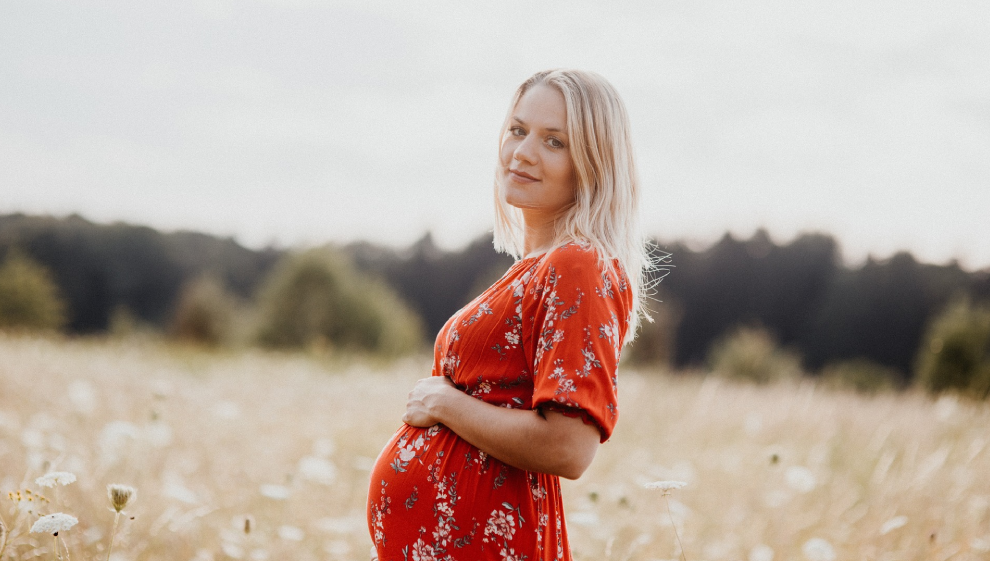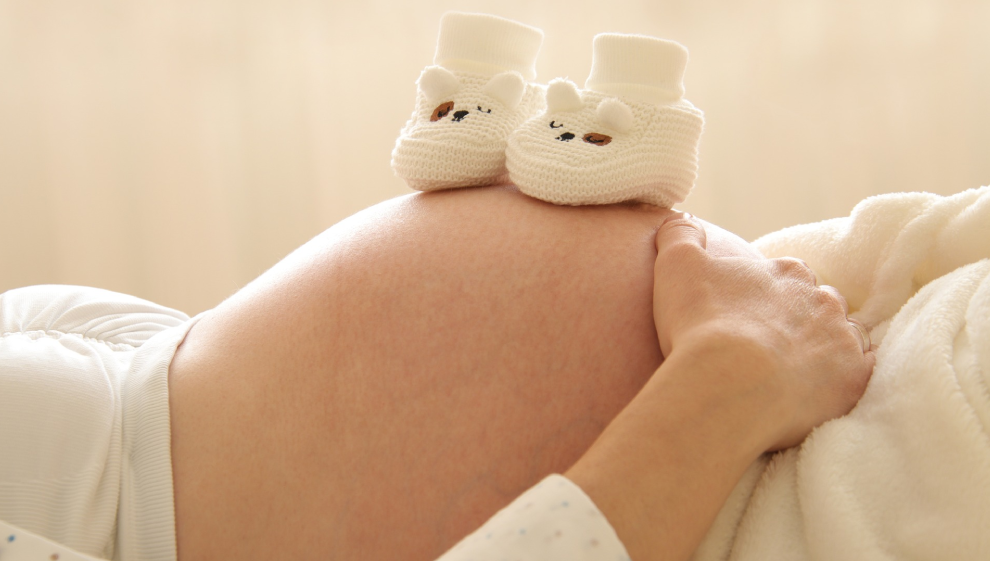How to pack a hospital bag for giving birth
- Overview
Hygiene essentials for your hospital bag
Antibacterial face wipes
Giving birth takes it out of you. Antibacterial wipes are great to have on hand to quickly wipe yourself down during and after giving birth.
They’re a quick and easy way to freshen up when you’re covered in sweat and don’t have instant access to a shower.
Nipple cream
Breastfeeding for the first time can aggravate the skin on and around your breast. Having nipple cream to hand to help heal and soothe your skin can make adapting to breastfeeding a lot easier.
There are different types of nipple creams available, including lanolin-free options, petroleum-based balms, and ultra-sensitive creams. Shop around and experiment with different creams and ointments until you find one that works for you.
Sanitary pads
After giving birth, you will likely experience bleeding (lochia) for several weeks. Sanitary pads are essential for managing the flow of blood and discharge and for keeping you comfortable and clean.
Many new mothers use heavy-flow pads in the days after giving birth to maximise absorption and reduce the risk of accidents.
Bring more pads to the hospital than you think you’ll need. It’s small, easy to store, and there’s no guarantee the hospital will have the style and shape that you like or prefer.
Your washbag
Pack a washbag full of sanitary essentials, including:
- Toothbrush
- Toothpaste
- Flannels
- Hairbrush
- Roll-on deodorant
- Soap
- Dry shampoo
Dry shampoo
Whilst looking your best won’t be a concern, quickly freshening your hair up after giving birth can make you feel a lot more comfortable.
Dry shampoo is a great alternative when you don’t have the time or energy to wash yourself right after delivery.
Comfort essentials for your hospital bag
A phone charger

Keeping your phone charged is a must if you’re kept in for a prolonged period following labour. You’ll need your phone on hand if you want to keep in touch with loved ones or arrange transport home with friends and family.
A book or tablet
If you’re kept in longer than anticipated or are away from your baby for a few hours after giving birth, a book, tablet, or magazine can help pass the time.
They’ll probably go unread, as most new mums use this time to get a quick nap in.
Clothing essentials for your hospital bag
High-waisted underwear

You’ll need to bring a few pairs of comfortable, high-waisted underwear to hold sanitary pads securely and comfortably in place after giving birth.
Leakage and blood flow are entirely natural after giving birth and isn’t something you should embarrassed about. Avoid anything fancy and only wear pairs you’re willing to stain or throw away afterwards.
When it comes to sizing and style, avoid loose fitted, low-cut underwear. This style isn’t great for holding pads in place and can result in increased leakage. Stock up on a few pairs of close-fitted pants that will securely hold sanitary products in place when worn.
A maxi dress
Your hospital will likely offer you a paper gown (or similar) to wear during labour. A lot of women will opt to bring and wear their own gown to maximise comfort and avoid irritation during delivery.
Maxi or maternity dresses are the clothing options of choice for many expectant mothers. They’re great because they’re airy, loose-fitting, and comfortable to wear when you’re sore and tired after giving birth. Choose something that’s made of breathable fabric to avoid overheating.
Nighties
Leave your favourite pyjamas at home.
Nighties are a lot more breathable, comfortable, and practical for breastfeeding. Pack two just in case (accidents will happen).
Flip flops
Flip flops are a must have in a hospital.
Throw them on when you go for a shower to avoid contamination and barefoot contact with potentially unsanitary shared areas.
Nursing bra
Most nursing bras are made with convenient clasps or flaps that can be easily unhooked or opened for quick and discreet breastfeeding access. This feature is handy during the initial moments after birth when bonding and nursing are crucial.
You can wear a nursing bra both during pregnancy and after birth, making them a practical investment and they offer great support for heavy and sore breasts.
Most nursing bras are made with absorbent and washable fabric pads that make it easier to manage breast milk leakage that will probably occur at some stage.
Spare glasses
The last thing you want is the sight of your newborn.
Unfortunately, glasses do unexpectedly break when we least expect it. If you heavily rely on your glasses, pack a spare pair just in case.
Sleep essentials for your hospital bag

A sleep mask
Many new mothers find getting any sleep after giving birth tiring. This is because the body is sore and maternal instincts are peaking.
There’s no guarantee that your hospital won’t be full of bright lights or visual disturbances that can make getting to sleep difficult. Packing a sleep mask can help you get some well-deserved rest if you do choose to stay in for a night after giving birth.
Other bits to remember
- Identification (driver's license or passport)
- Your birthing plan
- Any important health record documentation
- Any medication you take
Is there anything I shouldn’t bother bringing?
- All your baby clothes: it might be tempting to bring your baby an entire wardrobe of cute clothes, but keeping it basic with a few sleepsuits and swathing blankets is usually enough
- Pyjamas: you’ll be too tired to change into them anyway, and nighties or gowns make a far more practical alternative whilst in hospital
- A lot of snacks: Packing a load of snacks that never get eaten is very common. If you end up staying in longer than expected, food will be arranged for you and your baby
- Cosmetics and beauty products: leave the makeup and skincare essentials at home. The chances are you won’t have the time or energy to use them anyway
- Toiletries: packing a separate bag with the bare essential toiletries in can really help you prioritise what you do and don’t need
- Valuables: a good rule to follow is don’t bring anything in that you wouldn’t want to lose.
Giving birth at home
If you’re choosing to give birth at home, discuss a preparation and delivery plan with your midwife. Whilst it’s more convenient to have all the essentials on hand, there are certain precautions you need to take. For more information, click here for the NHS advice on home birthing.
First-hand advice from mothers
- “A maxi dress for the drive home” – Priya
- “Pack a sleep mask. They never turn the lights off in hospital” – Carla
- “Really comfy pyjamas are a must for afterwards” – Michelle
- “Take flip flops so you don't have to go barefoot on the hospital floor” – Priya
Frequently asked questions
How long will we be staying?
Every woman’s experience of labour is different and no two births are the same.
Some babies are delivered within hours of the mother going into labour and others take a lot longer to arrive. It’s best to pack more sanitary and comfort items than you think you’ll need just in case.
If you gave birth without complications and your baby is healthy, you can expect to go home anywhere between 6 to 8 hours after giving birth if you want to. Alternatively, you may wish to stay longer. Many mothers do choose to stay in hospital for around 24 hours after giving birth.
Can I bring more than one bag?
This isn’t usually a problem, but it’s best to check with your midwife or your local hospital first.
If you’ve got lots of bits and pieces to bring, prioritise sanitary and comfort essentials and have a family member or partner bring some of the less essential items along later.
When should I pack my bag?
We recommend packing your bag two to three weeks before your due date. Doing this with a loved one or family member can help, as two people are less likely to forget essential items.
If you’ve had any complications or anticipate you may give birth before your due date, it’s best to be even more prepared and have a bag of essentials ready to go months in advance.
You can always have a loved one bring anything you’ve forgotten up to the hospital if you’re desperate.
Should I bring clothes for my baby?
We recommend bringing a few sleep suits or swathing blankets.
Avoid bringing too many options, as the chances are you’ll be in and out of the hospital before you have the chance to use them.
Should I bring baby bottles?
If you’ve made the decision to not breastfeed, you will need to buy and bring a selection of premade formula bottles with you.
Avoid bringing formula that requires mixing, as your hospital will likely not have the facilities to sterilise and store this type of baby milk.
If you are breastfeeding, the nurses in the hospital will be able to give you support and advice during your stay.
Can I shower at the hospital?
Yes, you can shower at the hospital after giving birth vaginally. If you gave birth by C-section or if there were complications during labour, your midwife and nurses will advise you about how best to wash yourself.
A normal timeline will see you spending a few hours with your baby before taking a shower and being transferred to the postnatal ward.
Can I wash normally after giving birth?
Washing is generally not an issue if you gave birth vaginally without complication. You’ll be able to shower at the hospital after giving birth.
If you underwent a C-section, it's crucial you look after the incision site to prevent infection and encourage the wounds to heal naturally.
Typically, you can resume showering as normal a few days after the surgery. We do not recommend bathing or soaking in a bath or swimming until you are advised to do so, which is usually around 4 to 6 weeks after giving birth.
Last updated Tuesday 9 April 2024
First published on Wednesday 15 November 2023

